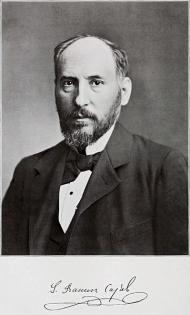International Workers' Day (also known as
May Day) is a celebration of the international labour movement. May 1 is a national holiday in more than 80 countries and celebrated unofficially in many other countries.
HistoryInternational Workers' Day is the commemoration of the 1886 Haymarket affair in Chicago. The police were trying to disperse a public assembly during a general strike for the eight-hour workday, when an unidentified person threw a bomb at them. The police reacted by firing on the workers, killing dozens of demonstrators and several of their own officers. "Reliable witnesses testified that all the pistol flashes came from the center of the street, where the police were standing, and none from the crowd. Moreover, initial newspaper reports made no mention of firing by civilians. A telegraph pole at the scene was filled with bullet holes, all coming from the direction of the police."
In 1889, the first congress of the Second International, meeting in Paris for the centennial of the French Revolution and the Exposition Universelle, following a proposal by Raymond Lavigne, called for international demonstrations on the 1890 anniversary of the Chicago protests. May Day was formally recognized as an annual event at the International's second congress in 1891.
Subsequently, the May Day Riots of 1894 occurred. In 1904, the International Socialist Conference meeting in Amsterdam called on "all Social Democratic Party organizations and trade unions of all countries to demonstrate energetically on May First for the legal establishment of the 8-hour day, for the class demands of the proletariat, and for universal peace." The congress made it "mandatory upon the proletarian organizations of all countries to stop work on May 1, wherever it is possible without injury to the workers."
In many countries, the working classes sought to make May Day an official holiday, and their efforts largely succeeded. May Day has long been a focal point for demonstrations by various socialist, communist and anarchist groups. In some circles, bonfires are lit in commemoration of the Haymarket martyrs, usually at dawn. May Day has been an important official holiday in countries such as the People's Republic of China, North Korea, Cuba and the former Soviet Union. May Day celebrations typically feature elaborate popular and military parades in these countries.
In the United States and Canada, however, the official holiday for workers is Labor Day in September. This day was promoted by the Central Labor Union and the Knights of Labor, who organized the first parade in New York City. After the Haymarket Massacre, US President Grover Cleveland feared that commemorating Labor Day on May 1 could become an opportunity to commemorate the affair. Thus he moved in 1887 to support the Labor Day that the Knights supported.
In 1955, the Catholic Church dedicated May 1 to "Saint Joseph The Worker". The Catholic Church considers Saint Joseph the patron saint of (among others) workers and craftsmen.
Far-right governments have traditionally sought to repress the message behind International Workers' Day, with fascist governments in Portugal, Italy, Germany and Spain abolishing the workers' holiday. 1 May in the US is celebrated as Loyalty Day.

